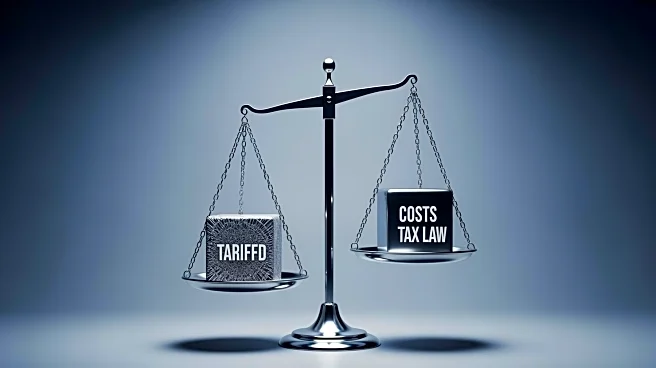Rapid Read • 6 min read
Inflation in the UK rose to 3.8% in July, primarily driven by increases in air fares and food prices. The Office for National Statistics reported a significant 30.2% rise in air fares between June and July, attributed to the timing of school holidays. Food prices also saw substantial increases, with beef, chocolate, and fresh orange juice among the items experiencing the highest price hikes. The Bank of England's forecast suggests inflation could peak at 4% in September, impacting economic policy decisions.
AD
The rise in inflation poses challenges for UK households, particularly as essential costs like food and travel become more expensive. The timing of school holidays affecting air fares highlights the sensitivity of inflation to seasonal factors. The Bank of England may need to adjust interest rates to manage inflationary pressures, influencing borrowing costs and economic growth. Consumers and businesses alike will need to navigate these changes, potentially altering spending and investment strategies.
The Bank of England is expected to carefully consider interest rate policies in response to rising inflation. Economic stakeholders will be watching for any adjustments that could impact consumer spending and business investment. The government may face calls to implement measures that alleviate the financial burden on households, such as subsidies or tax reforms. The ongoing inflation trends will be closely monitored to assess their impact on the broader economy and future policy decisions.
AD
More Stories You Might Enjoy











